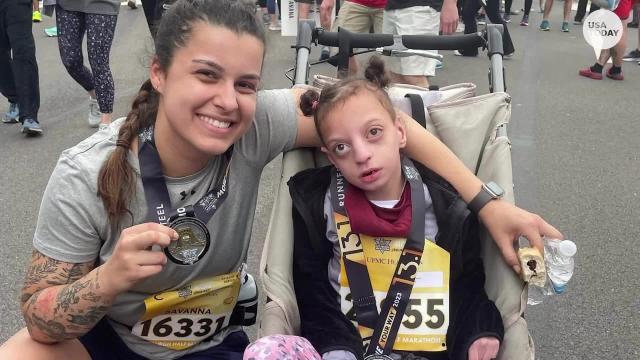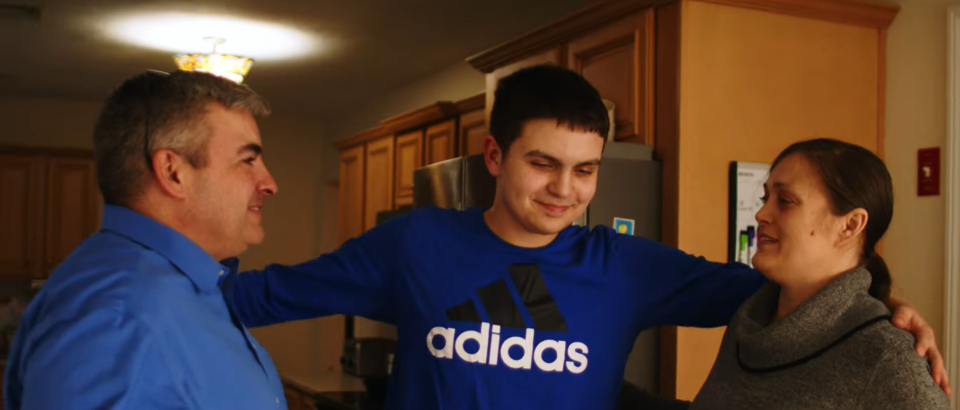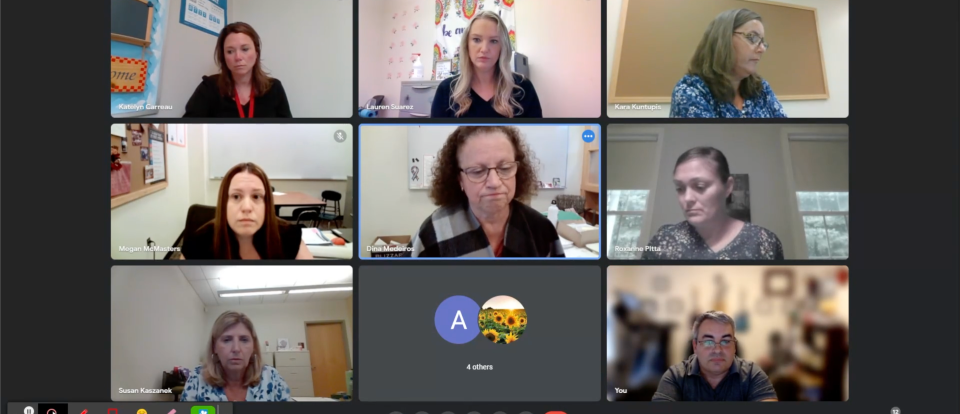Special education clash at Supreme Court: Why one dad is asking to record school meetings

Like many parents of a child with a learning disability, Scott Pitta is daunted by school meetings to come up with a teaching plan that accommodates his son’s autism.
There’s the byzantine special education terminology. The large number of participants. The need to take notes and try to follow what’s being said while advocating for his son, J.J.
Underlying that already stressful situation, there are often disagreements about what type of progress is possible, and what kind of help financially strapped schools can really provide.
“The reality is, it’s really the parents fighting for what the child needs ... and the administration pushing back on it,” he said.
In his own case, that fight turned adversarial after his son’s high school, south of Boston, disputed that J.J. needed extra support. Pitta contested the school’s written summaries of previous meetings and wanted to record their next Google Meet video conference.
School officials objected and now Pitta wants the Supreme Court to decide if parents have a constitutional right to record such meetings.
`Very emotional and very volatile'
His case has drawn support from conservative and libertarian groups, who argue that school meetings are similar to traffic stops or police arrests: government action that they believe are covered by a right to record and share information.

In the arena of disabled children's educational rights, which often unites ideological differences, other voices ? advocates, teacher organizations, liberal groups ? have not weighed in to the Supreme Court. Some point out that the issue Pitta is raising ? can he make videos of often emotional meetings with public officials ? introduces a lot of “what if” scenarios.
Cheryl Theis, a senior education advocate for the Disability Rights Education and Defense Fund, questions whether that recording would become a public record that the school – and not just the parent – could disseminate as it wishes.
“I have seen districts retaliate against parents by accusing them of inappropriate behavior or serving them with stay-away orders because of their behavior in ... meetings, which can be very emotional and very volatile,” Theis said.
A `constant fight'
Pitta said his family has been in a “constant fight with the school system” throughout J.J.’s academic life over what’s known as an Individual Education Program ? a plan that is required by the nation's education law for children with disabilities. (Pitta's wife, Roxanne, has a doctorate in special education and recognized early that J.J. needed intervention services.)
That fight turned into a legal battle when their school district, in Bridgewater, Massachusetts, said Pitta could audio record, but not video record, their online meeting.
Pitta argued audio alone wouldn’t capture who was speaking. A complete record was needed if Pitta wanted to fight a service denial.

Mary Ellen Sowyrda, the attorney for the school district, told USA TODAY videotaping goes beyond the accommodation of audio recording schools are supposed to offer parents if needed to make the meeting accessible to them.
Speaking generally about the IEP meetings and not about the Pitta case, Sowyrda said school officials may object to a video recording out of concern for how their images could be used and because they don’t want to open the door to possible intimidation tactics.
Most importantly, Sowydra said, the courts that have reviewed this issue said the meetings are not public events so there is no constitutional right to record them.
Aren't school meetings a local issue? Why get the Supreme Court involved?
Pitta argues that people should be able to record any of their interactions with a government official, comparing the accountability provided by a video recording of a school meeting to that of a police officer’s body camera.
“The average, day-to-day person doesn't interact with the police department every day,” he said. “But they'll interact with their local government, their school district several times throughout the year.”
Special education clash: How one student's Supreme Court case could make schools more accountable
About 15% of school-age children have an identified disability and are entitled to an Individual Education Program under the Individuals with Disabilities Education Act.
Schools and parents negotiate IEPs for a wide range of disabilities, including dyslexia, medical issues, mental illnesses, Down syndrome, speech or language impairments and autism.
Monitoring the government with a smartphone
The key question in the case, about whether regular citizens have the right to monitor government officials ? in this case, those who work for schools ? is an important issue for groups like the Goldwater Institute, which is representing Pitta in his appeal.
The significance of the case goes beyond educational meetings, the groups argue, as virtual meetings have become an ordinary fact of life, and because smartphones allow the average citizen to record public officials at the click of a button.
Advocacy groups for students with learning disabilities have not offered an opinion to the Supreme Court but are keeping an eye on Pitta's appeal.
Anne Strober, a parent who works with the school advocacy firm Weinfeld Education Group, says recordings provide necessary transparency and accountability.
“Sadly, contradictions, falsifications and omissions can be rampant if there is no accountability!” Strober said in an emailed comment to USA TODAY.
Clashes occur over fundamental disagreements between what a parent is expecting and what a school can provide or believes is necessary, said Jacqueline Rodriguez, CEO of the National Center for Learning Disabilities.
But the root issue, she said, is the federal promise of individualized support for students with disabilities is not backed up by the funding.
“The IEP meeting is not the problem,” Rodriguez said. “The problem is education is 1-2% of the federal budget.”
Katy Neas, CEO of the disability advocacy organization The Arc and a former top official at the U.S. Department of Education’s Office of Special Education, said the law can work when there’s a true partnership between both sides.
“When parents and schools can establish that trust relationship, these things don’t have to happen,” she said of disagreements that turn into lawsuits.
A candid conversation ? away from the camera
Pitta said he lost trust over what he contends was the school’s inaccurate portrayal about whether his son, J.J., should receive extra, individualized help in high school.
But the judges who have already considered Pitta's case said that lost trust doesn't require teachers to make their arguments on a video recording.
Unlike police officers, the three-judge panel of the U.S. Court of Appeals for the 1st Circuit wrote, school officials aren’t expected to endure the significant burdens caused by citizens’ exercise of their First Amendment rights.
Even if there was a constitutional right to record the meetings, the panel said, the school could place reasonable restrictions if needed, for example, to promote candid conversations.
The Supreme Court, which rejects the vast majority of the thousands of appeals it receives each year and has not asked the school district to respond to Pitta's appeal, could decide this month whether to review that decision.
Too late to help J.J.
Even if the Supreme Court agrees to hear Pitta's case, a victory would come too late to help J.J., who will have graduated by the time a decision is announced.
But Pitta ? who has been hearing from other parents about their struggles ? said it’s still a fight worth waging.
“A lot of parents are not going to be able to assert their own rights if these school districts can just say, `No, we’re not going to allow that today,’” he said. “We need something from the courts that says, `No, parents have this right.’”
This article originally appeared on USA TODAY: Special education clash: Dad takes school meeting fight to Supreme Court
Solve the daily Crossword

